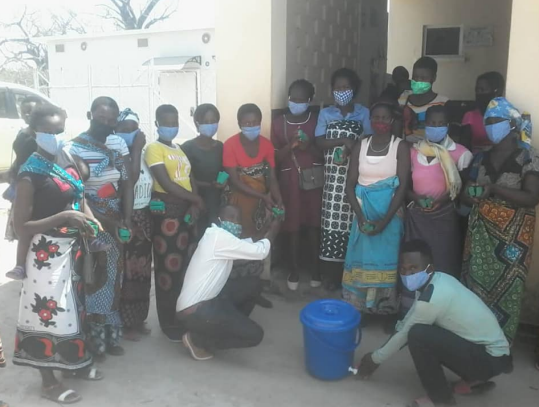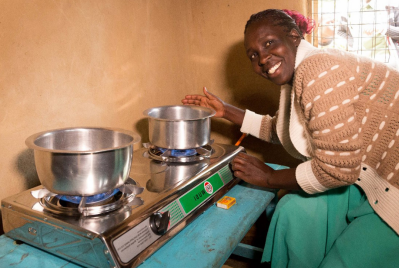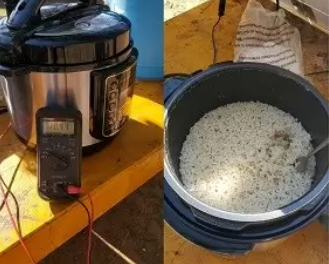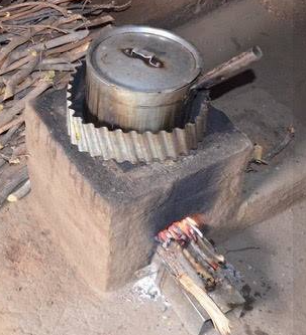|
Since its inception in 2017, Building Futures in Malawi (also known as the Mtuli Foundation), a non-profit organization based in Malawi, has been working to offer support for numerous projects within local communities. Their primary mission is to provide education development for children and girls, build educational facilities, as well as provide environmental education. In collaboration with GreenLight Solutions, The Mtuli foundation’s Education Development Officer, Robert Mhango, has concentrated his efforts on environmental challenges. This is GreenLight’s third semester working with Robert; the first two semester projects focused on researching sustainable agriculture and irrigation, and developing a way to share that information with the community. Many sustainable agricultural techniques, including: sub-irrigated planters, raised-bed irrigation systems, and food forests have been implemented as a result of past cohort projects.
The GreenLight Solutions team dispersed into pairs of two, each seeking to research a different energy source feasible for the community. Collectively, we explored three options: solar, biogas, and wood stove alternatives with improved efficiency, compared to the traditional stoves.
As another option, Rylee Richardson and Emily Stabilito researched the Flexi Biogas stove, which is powered by animal waste and is incredibly efficient in its gas production. Just 20kg of animal waste can produce enough gas to cook a meal for 4-6 people making this one of the most efficient options to choose from. The gas is produced through biogas digesters that extract the methane from organic waste for combustion. The price reflects the extreme efficiency of these stoves as they are the most expensive option that were proposed to the Mtuli Foundation, however the setup of the system has some variability. The community can decide how large of a biodigester to install, as well as what amenities they would like to utilize. The company Flexi Biogas Solutions has many biogas products, including fruit driers, water heaters, and grills. As a final option, Lindsay Brand and Brynne Fiorita proposed the TLC Rocket Stove. This stove is fueled by small, fast-growing, agroforestry trees grown on farms along with crop residues, and made of locally produced bricks and mortar and high-quality metal parts that last a minimum of 7 years. The configuration of the stainless-steel stick shelf permits air flow beneath the wood in the combustion chamber, allowing for more efficient combustion; the adjustable corrugated steel pot skirt improves transfer of heat from fire to pot, allowing for energy efficiency and reducing the GHG emissions. While this option does utilize wood, it is important to note that the Rocket Stove greatly reduces fuelwood consumption with a thermal efficiency of 34.5%, a 2-3 tonne reduction of unsustainably harvested firewood annually, and a 3-4 tonne reduction of CO2 emissions annually. In addition, other future considerations include add-ons for a roof solar system, a solar water pump that replaces hand pumps, as well as an irrigation system, making this partnership a valuable, long-term investment.
Through our research, we found that flexibility to pivot was key as we built our network of potential cookstove partners. Each lead offered critical insight into cultural practices and the available local resources from already well established projects in the area. Moreover, understanding social and environmental factors within the community offered an important perception when learning how to communicate with those in communities different from ours. These considerations, boundaries, and logistics to implementing new technology were fundamental to identifying appropriate options. As a team, we found considerable growth, comprehension, and appreciation working with the Mtuli Foundation. For information on their ongoing campaign to raise funds for this project or more about Mtuli’s mission, visit this site. Written By: Lindsay Brand | Brynne Fiorita
2 Comments
11/29/2023 08:09:54 pm
How can other communities or regions learn from the experiences of North Karonga in implementing sustainable cooking alternatives, and are there any transferable lessons or best practices?
Reply
Leave a Reply. |
Archives
July 2024
Categories |
|
RECEIVE GREENLIGHT NEWS
|
© GreenLight Solutions. All rights reserved.
|





 RSS Feed
RSS Feed